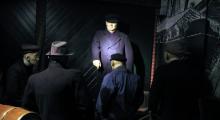We invite you to join us for a conference to mark the one-hundredth anniversary of the founding of the International Labor Organization (ILO). We will gather at Georgetown University in Washington, DC on November 21 and 22 for the “Continuing the Struggle: The International Labor Organization (ILO) Centenary and the Future of Global Worker Rights” conference. This gathering will be both retrospective and prospective, and will involve academics and practitioners, including policymakers, union leaders, and leaders of worker rights organizations.
1970-1990, désindustrialisation à Montreuil Histoire et mémoires
L’association Promnésie en partenariat avec les Archives départementales de Seine-Saint-Denis, l’Association Histoire et mémoires ouvrières en Seine-Saint-Denis et le musée de l’Histoire vivante organisent à Montreuil dans la salle des fêtes - Mairie de Montreuil
Le samedi 12 octobre 2019
de 9h30 à 17h30
une journée de réflexion consacrée à
« 1970-1990, désindustrialisation à Montreuil Histoire et mémoires »
Repas sur place - tarif : 12€
Inscription : promnesie@laposte.net ou Sabine Pesier 06 70 11 91 62

